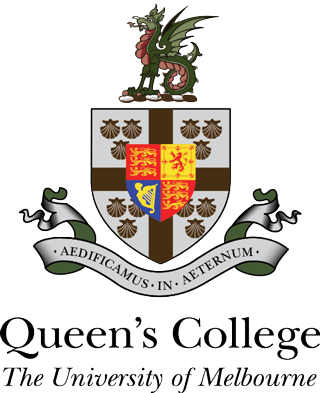Queen's College Indigenous Oration with Professor John Borrows
On 9 April Queen’s hosted Professor John Borrows, Canada Research Chair in Indigenous Law at the University of Victoria in British Columbia, and internationally renowned First Nations scholar. After a 2017 visit to Queen’s, John was delighted to return to support the college’s ongoing mission of reconciliation and of engaging in public intellectual debate on the grand challenges of our time. John’s topic for Queen’s 2nd Indigenous Oration was that of Indigenous resurgence in language, land and law.
In her Welcome to Country, Aunty Di Kerr spoke of our shared journeys, a theme developed by John in his discussion of entanglement, of the threads that bind us intersocietally
John, giving an Anishinaabe/Ojibway greeting to a hall packed with guests from several universities, including an international group of Sami researchers from Norway, spoke firstly of the life of the mind, quoting his grandfather’s advice that ‘life is at its best when it’s like a university seminar’. John’s own love of learning was encouraged by his grandfather Joshua, whose eclectic path from a childhood plagued by racism to a career as a ‘Hollywood Indian’, to that of farmer and homespun philosopher preceded John’s discussion of how to enter other states of being through other points of view; a philosophy of: ‘Read. Be still. Listen to others’.
The notion of vocabularies of comparison deriving from differing perspectives as a foundation for developing an ‘entangled’ or intersocietal perspective took John into two further intersections. The entanglement between Indigenous and imperial law is the basis of the JD taught at the University of Victoria, first of its kind globally. As Professor Shaun Ewen (Pro-Vice Chancellor, Indigenous, at the University of Melbourne) noted at the post-Oration Q&A, the occasion offered a timely reminder of the need to embed Indigenous knowledge into curricula at every level. John was named the 2017 Killam Prize winner in Social Sciences by the Canada Council for the Arts for the ‘quiet revolution’ he is bringing about by changing the view that indigenous law does not exist. In oral and visual cultures, law flows from ceremonial dances, cultural practices, origin stories, contact stories about settlers, oral histories, totems and other artistic works. The goal is to create legal institutions that are grounded in communities, are transparent and accountable, and can interact productively with other laws in the country.
The second intersection, summed up by John as ‘to be alive is to be entangled’, is based on the simultaneously liberating and oppressive societal and traditional threads, not entirely of our own making, that make us who we are. Reading the story of the fox, snake and man and spider’s web from the Tales of Nokomis, he emphasised how our ‘enmeshments’ give us common stock on which to build for the future.
In the Q&A, John discuss the achievement in Canada of reducing the gap between Indigenous and General population life expectancy to 2 years (in Australia the gap lags by 10 years) as well as the Canadian Truth and Reconciliation Commission recommendations.
The evening also saw the announcement of a major new partnership in the Indigenous space with Deloitte, who co-sponsored the event. Deloitte’s assistance to Queen’s in the endeavor of helping young Aboriginal and Torres Strait Islander students achieve their potential was encapsulated in the announcement of the inaugural Deloitte Indigenous Scholarship, a half- fee award that went to first-year student Paige James. The partnership also includes an annual summer cadetship for a Queen’s student.
The Queen’s College inaugural Indigenous Oration was given on 21 August, 2017 by Professor Marcia Langton, AM, on the plight of Aboriginal and Torres Straits Islander children in detention. The event is held annually as a cornerstone of Queen’s mission to help reduce the gap through education, to develop global First Nations partnerships, and to support the work of Indigenous scholars. Queen’s also hosts a monthly Indigenous Researchers seminar for early-mid career Aboriginal and Torres Straits Islander scholars from the University of Melbourne.
The next Indigenous event at Queens will be a lecture on 3 May on Australian and Canadian Reconciliation by Professor Pamela Klassen, Vice-Dean Undergraduate; International, Faculty of Arts & Science, at the University of Toronto.
